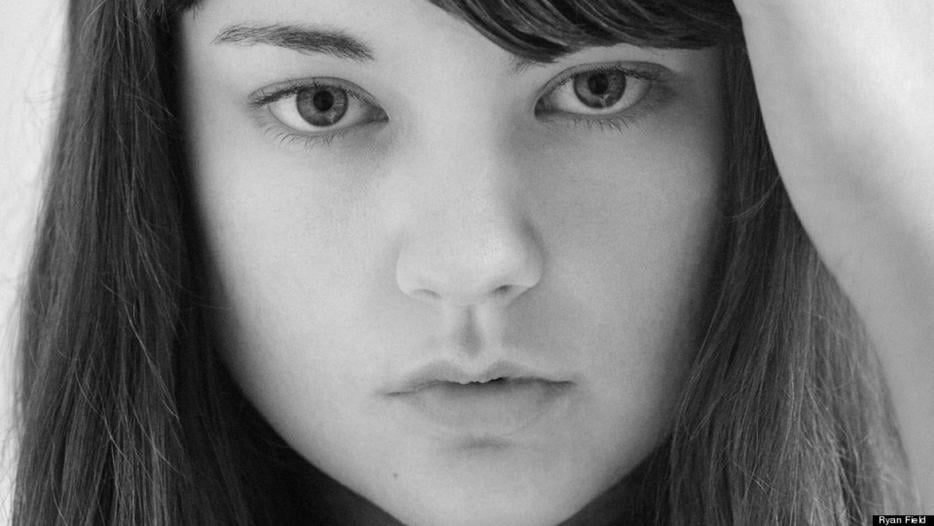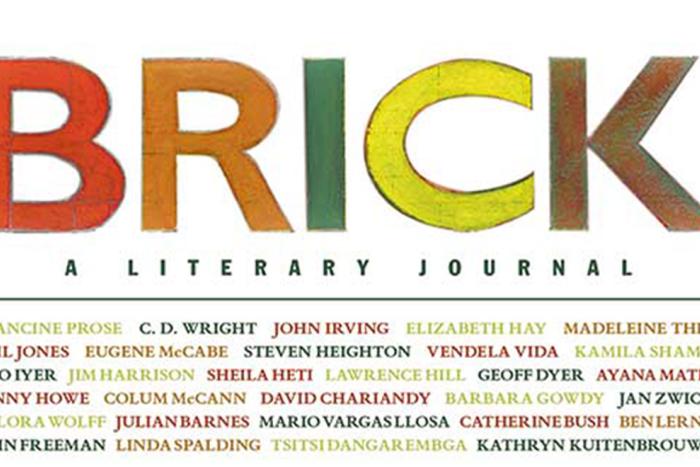Marie Calloway writes explicit short fiction based on her sex life. She is attractive. She is 23. Do you have an opinion yet? In 2011, she wrote about a brief affair with a 40-year-old cultural critic from New York, who had a girlfriend. The novelist Tao Lin published the story on his Muumuu House website under the title “Adrien Brody,” but the original, posted on Calloway’s blog, named the critic and ran with a photo of his cum on her mouth. Calloway has said she regrets the decision to name him; I regret it, too. It was callow and nasty, and it made the story seem vindictive when it was more than that. When critics began to moralize, Calloway was skewered in wild disproportion to the writer who’d cheated on his girlfriend with an admirer half his age. Most (but not all) failed to note that their dynamic, which we’re all familiar with and probably firsthand, is almost always told from one perspective.
Two years later, the small publisher Tyrant has published what purpose did i serve in your life, a collection of Calloway’s short, autobiographical stories (still presented as fiction, although the front and back covers feature her face). Calloway begins with her loss of virginity at age 18, then details her sex work in London; a sadomasochistic dalliance with a degenerate Irish photographer; a sadomasochistic dalliance with an unnamed dom, complete with pictures she’d posted online and the responses they elicited; and ends, finally with a threesome in a hotel room at age 22. I didn’t love the book but I’m really glad it exists.
The sex Calloway writes about is not just any sex, but sex of a particular kind: degrading, abusive, inspired or at least informed by porno, and hinged on a power dynamic that most with a conscience, including those of us who enjoy it, find troubling. “I’ve never been able to figure out why I get off on being used as an object,” Calloway writes. Reading her accounts, I remembered the way I felt when I watched Fat Girl by Catherine Breillat, in which a chubby preteen watches a sleazy older guy coerce her teenage sister into anal sex. The film is a mess in many ways, but I loved it. For me, it thematized a weird, suffocating desire to be misused, as well as the unholy union of outrage and sexual jealousy. The fact that a woman had made something out of those feelings, however balled up and chimerical they seemed in her narrative, made me feel less alone.
Fat Girl was all intuition with no exposition, while Calloway’s work is the opposite. But I relate to Calloway at 27 the way I related to Breillat’s work when I was Calloway’s age. “It was like I was his dog,” she writes of the photographer, after his umpteenth demand for a blow job. “He was humiliating me but I felt safe and warm and completely turned on. Nothing could be more enjoyable than this. To be dominated and degraded was what I wanted.” Her sentences aren’t elegant, but they eke a path through a messy subject. It’s complicated to participate in a fantasy of your own debasement—complicated by the indignation you feel at your objectifiers, complicated by the suspicion that you’ve been conditioned to your tastes by malevolent forces, and complicated by the fact that this desire, to be objectified, is real and overpowering the way all desires are.
Calloway is a sharp observer and a good arranger of details, but her prose is as rough as concrete. It’s a good match for her subject matter. She doesn’t tell stories so much as present documents—email transcripts, Facebook screen caps, iPhone selfies, dialogue lifted from her notebook—with annotation; there’s little abstraction, no evocative turns of phrase, nothing in her telling that transcends the material. Her objective is accuracy, not transcendence: she wants to present her experience as it happened rather than turn it into something else. And while she has more insight than style, better she get it right in statements than bog herself down in sentences. (Or *~~sentences~~*.)
Her sentences aren’t elegant, but they eke a path through a messy subject. It’s complicated to participate in a fantasy of your own debasement—complicated by the indignation you feel at your objectifiers, complicated by the suspicion that you’ve been conditioned to your tastes by malevolent forces, and complicated by the fact that this desire, to be objectified, is real and overpowering the way all desires are.
Last November, Michael Thomsen wrote a piece for Hazlitt about how infuriatingly oblique (and just bad) sex writing can be, praising Oriana Small’s memoir, Girlvert, for its plainness. Small, a former porn star known professionally as Ashley Blue, writes a lot like Calloway: she tells us what happened, no matter how abominable, no matter how banal, and leaves it at that. “Gang bangs aren’t exactly about the girl’s glamour,” she writes. “They are about brutality, getting ravaged. The girl always looks fucked up the whole time. The gang bang is slightly more than the video sequence of a rape fantasy. Whose rape fantasy? I suppose it could be anyone’s. It could be the guy’s or the girl’s.”
Small is a performer, not a philosopher (you can be both, of course, but she’s not). Still, there’s value in her account, both inherently and because porno is our thing as much as it is men’s. “I didn’t know how to act during sex,” Calloway writes, “and I had the gaps filled by pornography which taught me to act really horny and desperate during sex.” Porno didn’t implant our desires, but it shapes them unilaterally, and since desire is hard to express, it gives us a vernacular: we fall back on what we know, even if it’s nextto what we want. The desire to climb between someone’s jaws is natural, and it’s ours—but it’s fraught, and uncomfortable, and bunged up in euphemism. As above.
Calloway’s style is flat, declarative, and personal. It’s the language of Livejournal updates, which is as legitimate, as far as I’m concerned, as the language of leather-bound diarists etching in quill pen by candlelight. Her writing has been called artless and narcissistic, but that’s shortsighted: “[People don’t discuss] how much effort it is to create truly honest writing, in my opinion,” Calloway told Stephen Elliott for The Rumpus. “It requires a lot of thinking and effort. There’s often times a big difference between what you actually thought/felt in a situation and what you think you thought/felt... I admire self-awareness more than probably any other quality... so I can’t see a reason to think that self-absorption is inherently a bad thing.” Calloway is the ideal subject for Calloway, and while I’m roughly the 63948th person to say this, I doubt this would be as much of an issue if she were older or male; it would be less of an issue if it weren’t so easy to resent her.
It would be simpler to blame porn for the stuff Calloway gets up to, and it would be simpler if she weren’t self-aware—if she were just an archetype (victim, nymphet, psycho) to get off or pontificate on. But Calloway is as puzzled by her tastes as anyone else. She works her haters into the book—superimposing text from bad reviews and nasty online comments over self-portraits, in wonky digressions like a low-budget “descent into madness” montage. At first I thought this was self-indulgence, and it probably is (though self-indulgence is by no means particular to young women writers), but I think it serves a purpose. Because so much of the response to Calloway has been processing discomfort—resentment, jealousy, the shame of recognition, good old sexual guilt—and processing that discomfort is central to her writing.
Calloway is 23, and female, and attractive, so she’s a target for the discomfort her writing inspires—but if she were older and male, and her material less provocative, her writing would be less essential. There’s the hole in this defense. Calloway is talented, no doubt, and smart, and she knows how to structure a piece; the question of her literary merit becomes a little ridiculous when you consider how much and for how long folks have been talking about her writing. But I don’t love her writing. Her stories don’t gall me or wring tears from my eyes or inspire feelings of solidarity with the human community; they don’t offer formal pleasures, the way a wittier writer or a spirited pack of highland dancers would. Then again, books exist for many reasons.






